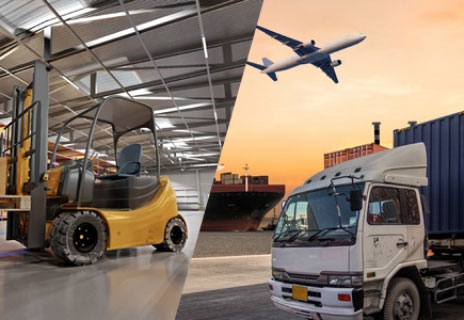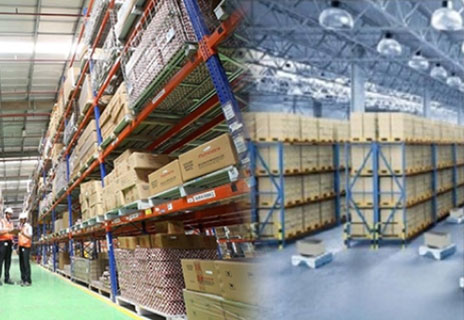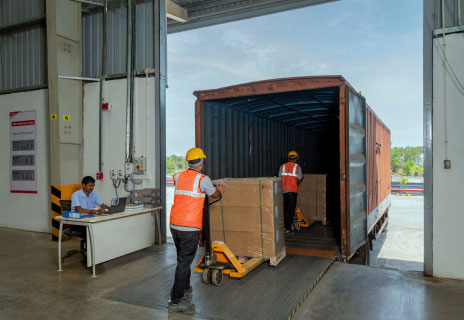
The Tech-tonic Shift In FMCG/ FMCD Supply Chain Management
"Leaders win through logistics. When you go to war, you need to have both – the rations and bullets at the right place at the right time - Tom Peters"
The recent address by Shri Sanjay Jaju at FICCI implies that with the Atmanirbhar Bharat initiative, India envisions to be a part of global supply chain.
Hence, the role of SCM back home is critical for a sustainable and evolving economy. Back in 2020, the Indian Supply Chain Industry was estimated at $225 billion and now, with several dynamic market and geo-political forces at play, the industry is touted to rise to $637 billion by 2025. One of the key growth forces is the FMCG and FMCD Market, along with the onset of the e-commerce market.
The rise and rise of FMCG and FMCD
Valued at INR 500 billion, India’s FMCG sector is the fourth largest sector of the economy with the size of about more than INR 500 billion, and in 2023, the YoY growth rate of the FMCD sector was 18%. These numbers portray the potential economic impact these industries have on the GDP, especially on Supply Chain Management and Logistics.
But SCM in FMCG and FMCD is a tricky business. Primarily because FMCG products is a volume game as they have a low unit cost. Hence operational efficiencies are cost-effective only if the volume game is played well, especially in an industry which is challenged by complex distribution networks and immense competition.
The other challenges of the supply chain management in the FMCG industry are:
- Inefficiency of processes: With absence of standardization, most processes are manual leading to errors, delays, increased costs.
- Complex Markets: The diverse consumer markets leads to distribution challenges and need customized supply chain strategies. But creating efficient wide-reaching distribution systems is a Herculean task.
- Logistics & Infrastructure: Substandard Infrastructure lead to poor transportation which in turn affect cost-efficient and timely delivery.
- Inventory Management: Balancing availability of products with the cost of holding inventory requires a robust inventory management system at the warehouse level.
Some of these challenges might require an overhaul and several stakeholders to contribute in actioning relevant solutions. For instance, poor infrastructure (roadways, under-use of railways etc) need a transformation at a national level. However, with the new logistics policy in play, the government would be investing over $1 trillion in infrastructure development over the next five years, that promises to ease the FMCG logistics’ issues.
And now, coming to the other challenges like inventory management, cost-efficient operations etc, it becomes imperative that the supply chain management in FMCG and FMCD industries constantly innovate. But first, what needs to be analysed here are the focus areas of this tech evolution in the supply chain in FMCG sector.
Edwards Deming says “85% of the reasons for logistical failure are deficiencies in the systems and process rather than the employee. The role of management is to change the process rather than badgering individuals to do better.”
It is then evident that the FMCG & FMCD Supply Chain Management businesses need to focus on improving these system deficiencies. And to do that, there is one inevitable solution which the entire industry has to adapt and that is Transformation with Technology or Digital Transformation.
Having said that, the Indian supply chain industry is evolving progressively. As per a KPMG report, 6 of 10 companies will invest big in digital technology for processes and data analysis. As per a research conducted by Deloitte, 78% of companies believe that big data and analytics will be critical to supply chain success in the next five years.

Given the insights, and the nature of FMCG & FMCD industries, technological advancement is the key to a more efficient SCM. To cite a few instances of these technological innovations in supply chain management:
- Automation: According to Accenture, the autonomous material handling equipment has increased efficiency and safety reducing loss and pilferage, and improving productivity.
- Predictive Analytics: Predictive and advanced data analytics applied to machine learning helps forecast trends and resolve inventory issues, helping companies adapt to unforeseen circumstances and manage competition.
- Internet of Things (IoT): According to McKinsey, IoT (Internet of Things) will have tremendous impact on the FMCG SCM Industry. IoT is typically utilised for Smart Warehousing and Inventory Management for FMCG, as it facilitates monitoring of temperature, humidity, real-time tracking through sensor-technology which is imperative for perishable goods. For example, digital tools like Radio Frequency Identification (RFID) tracking help in stock monitoring.
- Blockchain and Robotics: Blockchain provides a safe close-ended network for transparent data sharing, enabling real-time information exchange to adapt to versatile market dynamics. Consequently, this enables cost savings through more efficient route planning of transport.
Insights & Predictions
While digital evolution will undoubtedly transform the supply chain management systems for the FMCG and FMCD industry, there a few upcoming trends which SCM professionals should be updated about.
In the 2023 Digital Trends in Supply Chain Survey by PwC, 22% of executives plan to allocate at least $5 million to artificial intelligence and machine learning over the next two years. The report forecasts that by the year 2035, the integration of AI in FMCG will yield a 40% boost in productivity. So a few upcoming trends which we can foresee are:
- Artificial Intelligence (AI) will be a game-changer to Optimize Distribution and Logistics: AI automates automation, i.e. Through AI-driven algorithms, they bring a layer of high-precision data-driven processes to further speed up real-time planning and decision making, a critical asset to FMCGs.
- Cobots or Collaborative Robots: A niche technology, cobots are an advanced robotic arm with protective stops, enabling safe automation. They are an affordable solution to a labour-centric country like ours. For example, one of the manufacturing units in L’Oreal India at Chakan deployed collaborative robots to automate the strenuous palletising process. As a result, the company saw a 5% increase in Overall Equipment Effectiveness (OEE) at their plant.
Summary
While over 60% companies are aware of the new technology, only 40% or so have adapted to it. The rule of war is ‘survival of the fastest’, and this is indeed a business war. According to the KPMG report, India will be the world’s fifth-largest consumer market. It will be inevitable for the FMCG Supply Chain Companies to adapt. Advanced technologies are transforming the supply chain world with generative AI, data analytics, machine learning, etc to become a smarter economy. It’s the new tech-tonic shift for the FMCG logistics companies.





